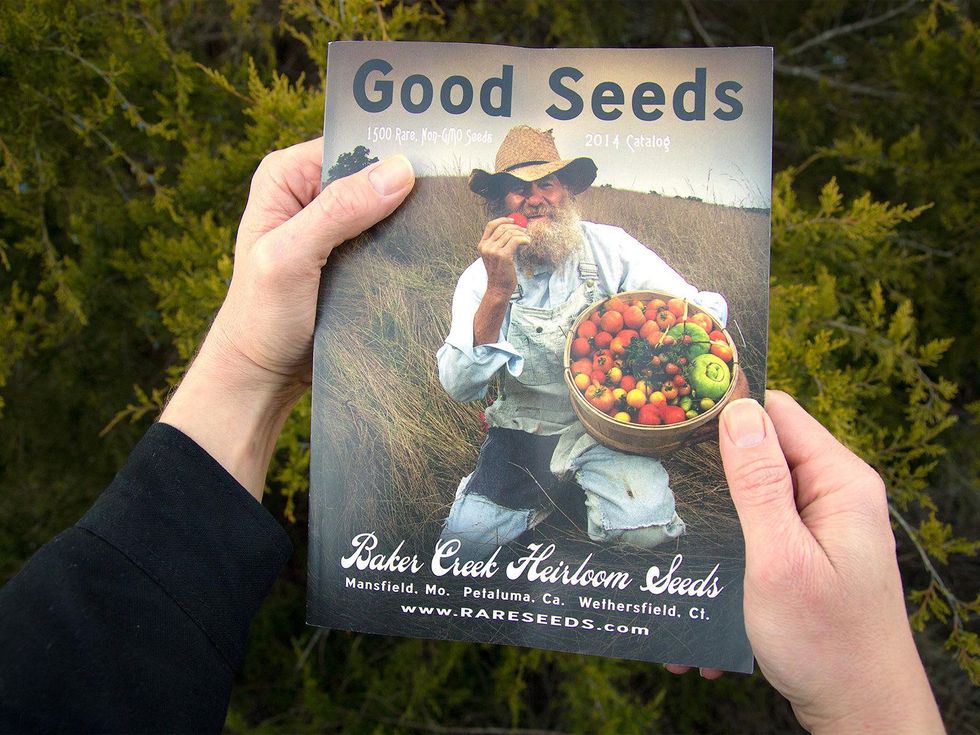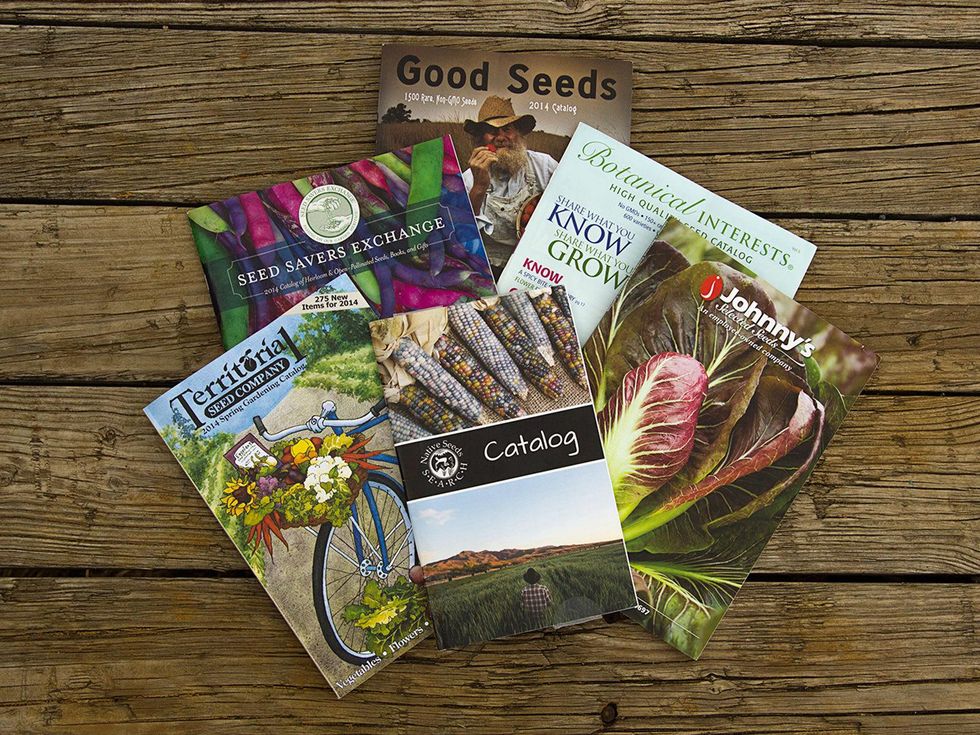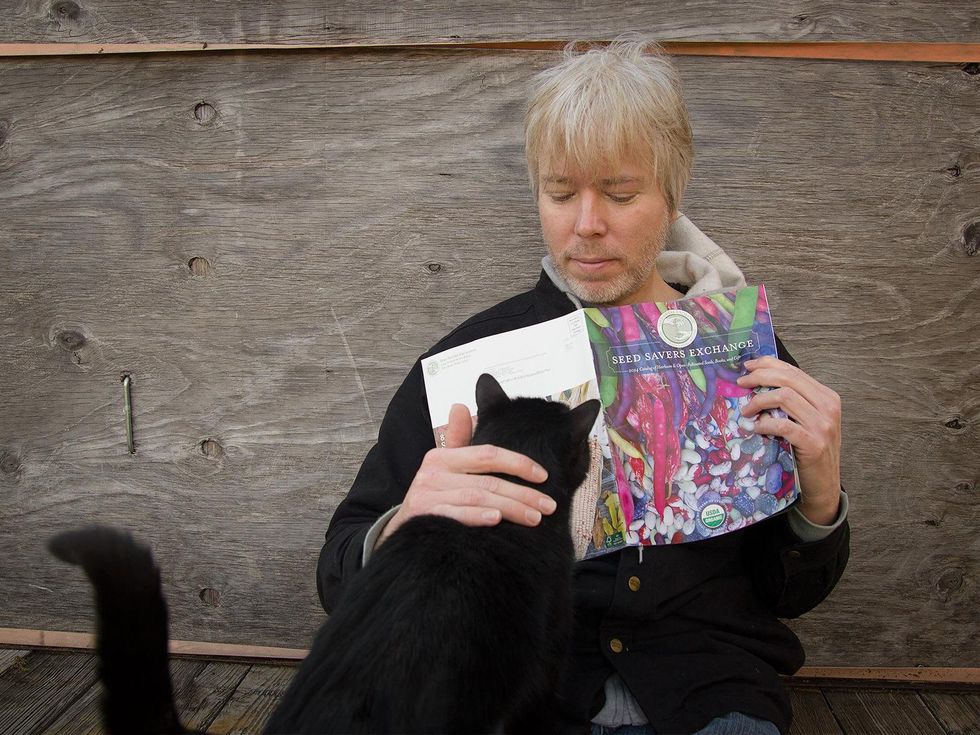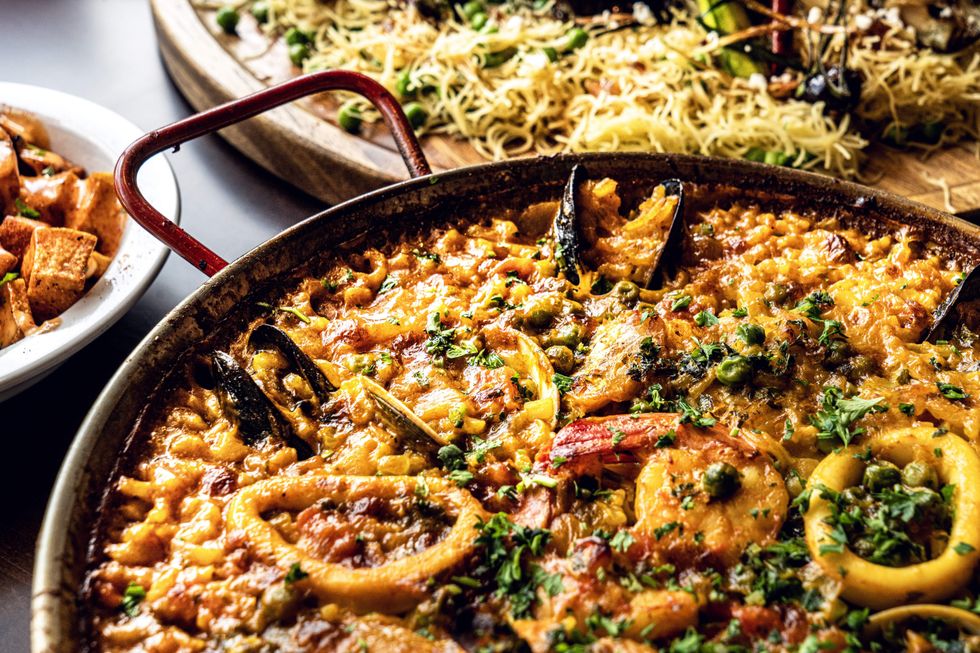The Farmer Diaries
Want to grow great heirloom vegetables, herbs and flowers? It's all in the seeds
There was a time when I relied on the garden centers at big box retailers for seeds. Late in winter, I'd spend hours browsing, sifting through their inventory.
But over the past few years, I've come to learn that the "one size fits all" seed lineup at chain stores is a disappointment. Seed selection does have an effect on the success of your crops.
Fortunately, there are smaller, more specialized companies offering better-quality seeds adapted to the Texas climate. But finding them takes some digging. Dozens of seed companies send out catalogs each year. Some are good; some are not.
And no single seed supplier has everything. I've narrowed down my list to a handful of companies whose seeds give me a better chance of success. Here's my current top 8 list of seed suppliers:
Baker Creek Heirloom Seeds
Baker Creek Heirloom Seeds claims to have the world's largest seed catalog, and I believe it. Husband and wife Jere and Emilee Gettle own the company and travel the planet in search of rare, heirloom vegetables, herbs and flowers, bringing back what they find and adding it to their catalog after careful trials.
To date, the catalog offers 1,500 varieties — all open-pollinated, with no GMOs in the mix. The company is not passive about the issue of genetic engineering, dedicating much of its resources to protecting traditional crops and educating anyone who'll listen about the need to preserve our agricultural heritage.
My seed picks: Wando garden peas, a variety especially suited to Texas; emerald okra; and several varieties of sorghum. (It's a shame more Americans don't know how delicious sorghum is.) Balcony mix and Fire Chief petunias are also a treat as they grow easily, live through the winter if protected and emit a beautiful fragrance — unlike hybrid petunias.
Native Seeds/SEARCH
Not a company but a nonprofit organization, Native Seeds/SEARCH conserves seeds grown for centuries in the Southwest by Native Americans and early settlers. The seeds in the organization's catalog are especially suited to arid lands — or, in other words, Texas.
Working against the proliferation of genetically engineered crops, Native Seeds/SEARCH grows most of the seed it offers. By keeping ancient forms of corn and various other heirloom crops in production and available for purchase, the organization has kept many heritage crops from extinction.
These open-pollinated lines are sturdy, rugged and ready for anything the Texas climate can throw at them.
My seed picks: Texas Wild, Nichol's and Punta Banda tomatoes — the term "drought tolerant" doesn't begin to describe how well these hold up to summer. Also of note: chiltepins, the wild relative of modern chili peppers that will ignite your tongue; Hopi short staple cotton; Texas Hill Country Red okra; and Pima Club wheat.
The organization has recently received a lot of attention for its brilliantly beautiful glass gem corn, a corn with multicolored, glass-like kernels, developed by crossing a multiple native corn varieties.
Seed Savers Exchange
Seeds Savers Exchange is another nonprofit working to preserve heirloom crops, many of which are rare and in danger of being lost. All varieties from Seed Savers are open-pollinated, which means the seed of each crop may be saved by farmers and used the following year without worrying about lawsuits from Monsanto.
Seed Savers Exchange's catalog lineup rivals only Baker Creek's; thumbing through the pages, a farmer will find 23 varieties of cucumbers, 32 varieties of squash and 70 varieties of tomatoes.
My seed picks: Detroit dark red beets, Georgia Southern collard greens, Yukon Gold potatoes, Five Color Silverbeet Swiss chard and Bee's Friend — a magnet for attracting and feeding crop pollinators.
Johnny's Selected Seeds
When I think of Johnny's, the first thing that comes to my mind is the huge selection of lettuce: 16 pages of it, along with helpful tips on how to grow lettuce for the market.
Johnny's doesn't just sell seed; it supports and educates farmers who are earning a living with what they grow. Additionally, Johnny's develops crops, adding to the offerings of modern seed varieties without genetic modification.
My seed picks: Non-GMO soy beans, Buttercrunch lettuce, blackberry and strawberry plants, borage, chamomile, and wild bergamot.
Sustainable Seed Company
As the company's name suggests, Sustainable Seed Company is perhaps the most eco-conscious of all the seed suppliers, with much of its lineup produced on the company's certified organic farm and managed in a facility powered by wind turbines and solar collectors.
My seed picks: Grains (especially organic oats for growing cat grass), Pequin peppers and alfalfa (uncontaminated by genetically engineered alfalfa).
Territorial Seed Company
A new source for me this year, Territorial Seed Company strives to support sustainable, regional agriculture.
My seed picks: Electric Neon Blend Swiss chard; Sugar Pot watermelon, which is compact enough to grow in a raised bed; and asparagus.
Botanical Interests
Botanical Interests lists 600 seed varieties in its catalog. Each packet is adorned with an informative botanical illustration of the plant-to-be, and even the inside of the seed pack offers more information on growing, harvesting and using the crop.
My seed picks: Baby round zucchini, Sugar Baby watermelon, sprout and mesclun mixes, and almost everything from Botanical Interests' top-notch selection of herbs.
Willhite Seed Company
Now an online-only store, Willhite Seed Company is the seed source that rounds off my purchases for the year, especially for seed that I need in quantities larger than the fractions of an ounce found in most seed packets.
My seed picks: Israeli melon (old original) — the only source for it — as well as a farmers market selection of peas, beans, squash and okra.
Even with the superior seed of these companies, there's still trial and error involved. But starting with good seed has unquestionably improved my chances of good harvests with less frustration in recent years.




 The Paella Valenciana is one of the most popular dishes at Mi Luna.Photo by Dylan McEwan
The Paella Valenciana is one of the most popular dishes at Mi Luna.Photo by Dylan McEwan No TVs to distract diners at Mi Luna.Photo by Dylan McEwan
No TVs to distract diners at Mi Luna.Photo by Dylan McEwan